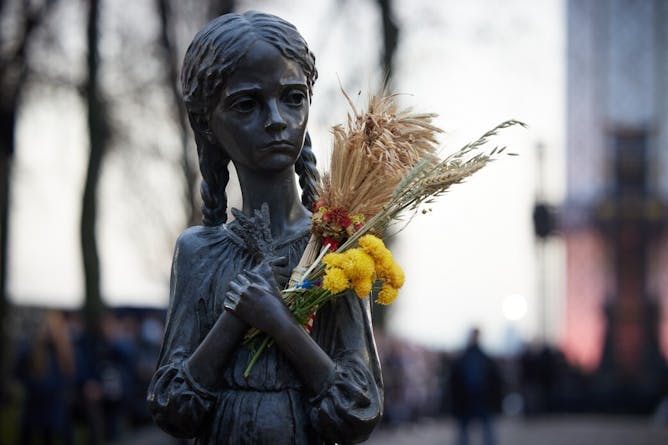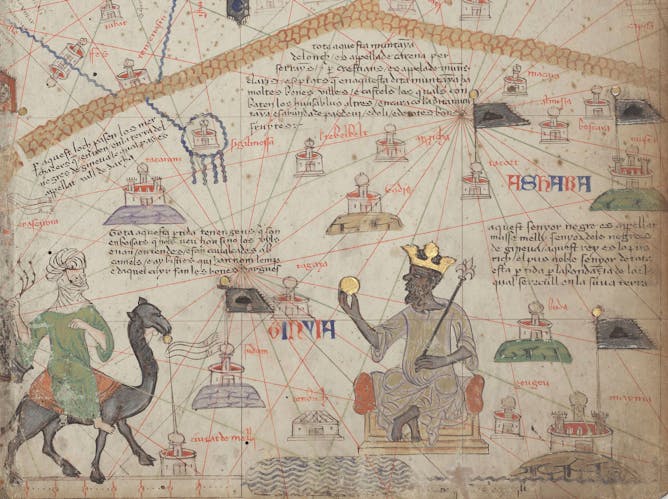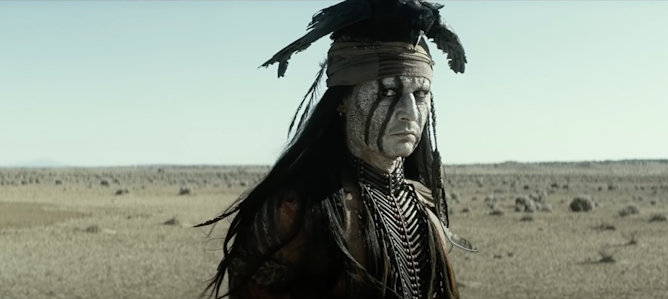|
When compiling these newsletters, we take a variety of factors into consideration. We seek to provide a mix of content from across the global network of The Conversation and to highlight the broad range of academic research expertise that can enlighten and explain events and discoveries.
We also generally want to avoid leading on the same subject in consecutive emails. However, occasionally an issue is so topical, important and central to our coverage that it feels it would doing you, our readers, a disservice not to have it up top. Today is one of those days. All week, tensions have been ratcheting up in Ukraine. And we have commissioned on the matter extensively. All our coverage in English can be accessed here.
But across the editions we have been looking at issues as diverse as disputes involving musicians and how climate change could hit coffee crops. And, we've answered a question from a curious kid on what would happen if mosquitoes vanished.
|

A statue commemorating the Ukrainian famine, in which millions died.
Ukrainian Presidency/Handout/Anadolu Agency via Getty Images
Emily Channell-Justice, Harvard University; Jacob Lassin, Arizona State University
Ukraine was once known as the breadbasket of Europe, yet it suffered a devastating famine as a result of collectivist plans. That and other Soviet-era grievances have bred resentment toward Russia.
|

Albarn has apologised ‘unreservedly and unconditionally’ to the US singer Taylor Swift after claiming she didn’t write her own songs.
Shutterstock/Alamy
Helen Reddington, University of East London
Anyone involved in the creation of a song is a songwriter.
|

Mansa Musa, the king of Mali, approached by a Berber on camelback, from The Catalan Atlas, 1375.
Attributed to Abraham Cresques/Bibliothèque Nationale de France/Wikimedia Commons
Lauren van der Rede, Stellenbosch University
Born in Blackness by Howard W. French is a towering work. It argues that, because of gold and slavery, Africa is central to creating the modern world.
|
|
|
-
Gemma Ware, The Conversation; Daniel Merino, The Conversation
Plus, what toxic heavy metals are lingering in household dust around the world? Listen to The Conversation Weekly podcast.
-
Peter Jaskiewicz, L’Université d’Ottawa/University of Ottawa; Katrina Barclay, L’Université d’Ottawa/University of Ottawa; Roy Suddaby, University of Victoria
Traditions shouldn’t be thrown out since they often provide a vital foundation for the family business. But they also shouldn’t be rigidly enforced.
-
Shüné Oliver, National Institute for Communicable Diseases
What we call mosquitoes are actually 3500 different types of insects, and they all behave differently.
-
D. Bondy Valdovinos Kaye, Queensland University of Technology
Spotify will pull Neil Young’s music after the musician demanded the streaming service remove The Joe Rogan Experience from its platform, as an episode of the podcast promoted COVID misinformation.
-
Denis J Murphy, University of South Wales
More than half of the world’s best growing land could become less suited for coffee.
-
Radhika Raghav, University of Otago
Bollywood is demonstrating a renewed purpose of creating new national myths, such as 83’s retelling of India’s first win at the cricket world cup.
|
|

Celeste Pedri-Spade, Queen's University, Ontario
Indigenous Nations have always maintained their citizenship orders. They have always retained the right to determine who does and does not belong. We know who we are.
|